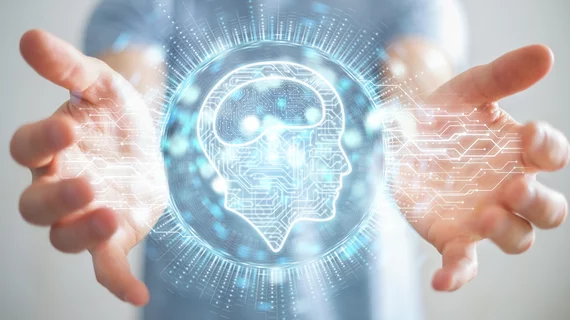Cardiologists find AI to be more accurate than sonographers at interpreting echocardiograms
An advanced artificial intelligence (AI) algorithm interpreted transthoracic echocardiograms (TTEs) with more accuracy than trained sonographers, according to new research published in Nature.[1]
The study was a blinded, randomized trial that asked cardiologists to review 3,495 TTEs from 3,035 patients. The cardiologists were asked if they agreed with these initial assessments and if they had any corrections to offer.
Overall, cardiologists made corrections to 16.8% of AI-generated assessments and 27.2% of sonographer assessments. Also, an AI-guided workflow was associated with saving both sonographers and cardiologists time compared to a more traditional workflow.
“The results have immediate implications for patients undergoing cardiac function imaging as well as broader implications for the field of cardiac imaging,” senior author David Ouyang, MD, a cardiologist with the Smidt Heart Institute at Cedars-Sinai in Los Angeles, said in a prepared statement. “This trial offers rigorous evidence that utilizing AI in this novel way can improve the quality and effectiveness of echocardiogram imaging for many patients.”
Another key takeaway from the group’s findings was that cardiologists were unable to consistently distinguish between AI- and sonographer-generated assessments. Cardiologists correctly guessed the source 32.3% of the time, incorrectly guessed the source 25.2% of the time and said they were “unsure” for all other studies.
“This speaks to the strong performance of the AI algorithm as well as the seamless integration into clinical software,” Ouyang added. “We believe these are all good signs for future AI trial research in the field.”
“This work raises the bar for artificial intelligence technologies being considered for regulatory approval, as the U.S. Food and Drug Administration has previously approved artificial intelligence tools without data from prospective clinical trials,” added co-senior author Susan Cheng, MD, director of the Institute for Research on Healthy Aging at the Smidt Heart Institute. “We believe this level of evidence offers clinicians extra assurance as health systems work to adopt artificial intelligence more broadly as part of efforts to increase efficiency and quality overall.”
Read the team’s full analysis here.

